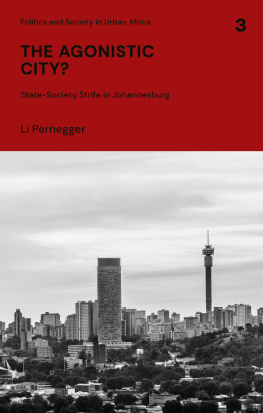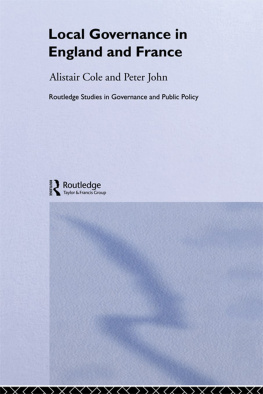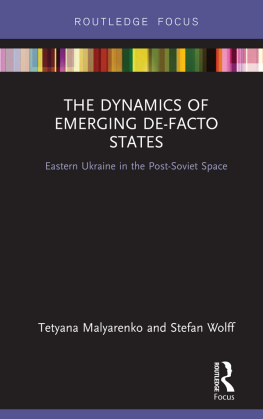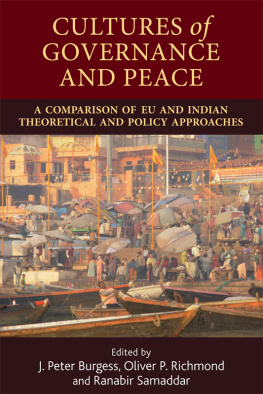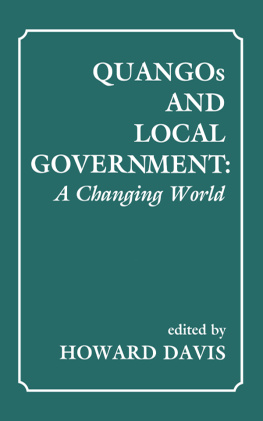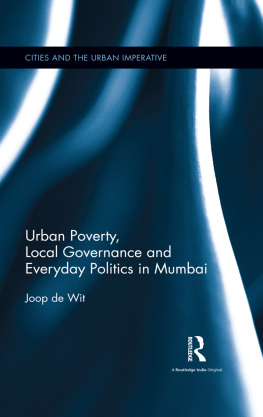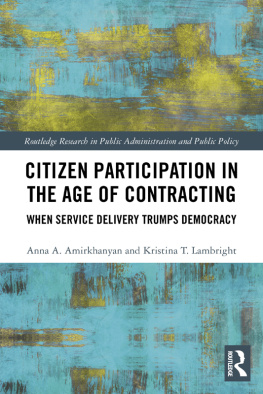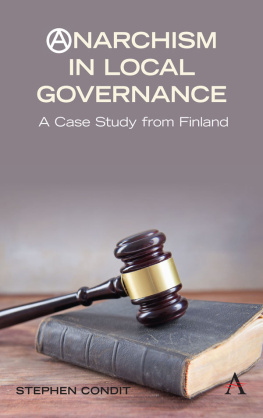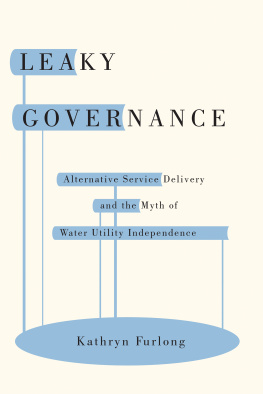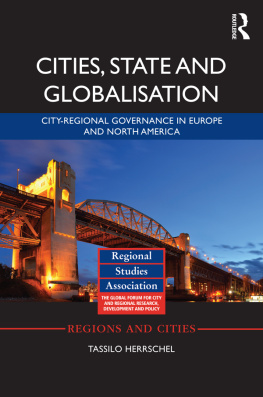About the author
Dr Li Pernegger recently completed a postdoctoral fellowship at the Architecture and Planning School, University of the Witwatersrand (funded through its School of Governances Life in the City Programme). She has also been an official in city and national governments in South Africa and the United Kingdom, with over years of project, programme and strategic management experience in complex built environment and socio-economic initiatives. Her hands-on experiences in the state and academia give her rare insights into urban development and governance processes at national and municipal levels.
As the former Head of the National Treasurys Neighbourhood Development Programme, Li managed over R billion ($. billion) in grants awarded to municipalities across South Africa. Prior to that, Li was the Programme Manager for Economic Area Regeneration for the City of Johannesburg. She focused on areas in decline, at risk, or not fulfilling their economic potential.
Li also undertook strategic consulting work for core and non-core business development for governments and the private sector after getting her Executive MBA at Birmingham University, United Kingdom. She was the Town Centre Manager for Dudley, funded by local government and the private sector, and was also in charge of driving regeneration visions for other struggling UK town centres. Earlier, she was the Manager of Economic Empowerment for Johannesburg, focusing on the informal business sector, and a practising architect.
The Agonistic City?
StateSociety Strife in Johannesburg
Li Pernegger
The Agonistic City? StateSociety Strife in Johannesburg was first published in 2020 by Zed Books Ltd, The Foundry, Oval Way, London SE RR, UK.
www.zedbooks.net
Copyright Li Pernegger 2020
The right of Li Pernegger to be identified as the author of this work has been asserted by her in accordance with the Copyright, Designs and Patents Act, 1988
Typeset in Plantin by River Editorial Ltd, Devon, UK
Index by Jenny de Wet
Cover photo THEGIFT777/iStock
Printed and bound in Great Britain
All rights reserved. No part of this publication may be reproduced, stored in a retrieval system or transmitted in any form or by any means, electronic, mechanical, photocopying or otherwise, without the prior permission of Zed Books Ltd.
A catalogue record for this book is available from the British Library
ISBN -- 78699 -- hb
ISBN -- 78699 -- epdf
ISBN -- 78699 -- epub
ISBN -- 78699 -- mobi
Contents
Unless otherwise stated, maps were prepared by Miriam Maina using QGIS (QGIS 2020 ) with data from various sources (AfriGIS 2014 ; Centre for the Analysis of South African Social Policy 2009 ; GeoTerraImage 2015 , Municipal Demarcation Board 2015 ) and official statistics from Statistics South Africa (Quantec 2014 ).
Note that all currency conversions were derived from historical rand per US dollar exchange rates (South African Reserve Bank 2019 ).
| ANC | African National Congress |
| APF | Anti-Privatisation Forum |
| COJ | City of Johannesburg |
| EWN | EyeWitness News |
| GJMC | Greater Johannesburg Metropolitan Council |
| GJTMC | Greater Johannesburg Transitional Metropolitan Council |
| GPG | Gauteng Provincial Government |
| JAG | Johannesburg Advocacy Group |
| JMPD | Johannesburg Metropolitan Police Department |
| MLC | Metropolitan Local Council |
| MTC | Metropolitan Trading Company |
| RSA | Republic of South Africa |
| SMLC | Southern Metropolitan Local Council |
| TPA | Transvaal Provincial Administration |
Although much of writing is done alone, it was less lonely than I expected. Thanks go to Philip Harrison especially; The Agonistic City? would not have existed without his guidance and belief in its value. Thanks too for the help of others: to Margot Rubin for constructive critiques; to Claire Bnit-Gbaffou, Glyn Williams, Carl Death and Sharon Lewis for engaging in debates around this research; and to Peter Griffiths for narrative development support. Thanks to the editorial team at Zed Books for seeing potential in my early scribblings. Behind every author is a family: thanks to Keith for keeping the home fires burning, and to Jo, Su, Gisela and Willi who also inspired me in different ways.
I have drawn on my journey as an urban development and city governance practitioner in local and national governments in South Africa and the United Kingdom, often bumping up against antagonistic protest and dilemmas impossible to resolve in lasting ways. In turns obsessed, exhilarated, confounded, stressed and provoked by the many practical and strategic issues of governance in informal trading, area-based development, economic development and city governance, these experiences led me first to a doctoral thesis, and then to explore the topic further in The Agonistic City? I thought I could create some meaning out of some of the perplexing puzzles of governance, but I found it raised many more questions than answers. This book is not a personal memoir; it belongs to all within the state who generously shared their stories. Any errors in the retelling are mine, as are the opinions and conclusions.
The South African Research Chairs Initiative in Spatial Analysis and City Planning, the Wits School of Governance and the National Research Foundation provided funding and other resources for this research.
The rise in protests and scale of activism in recent years is seemingly unprecedented. While the uprisings associated with the Arab Spring targeted autocratic leaders, many others have happened in contexts of democratic rule. These include the actions of the Occupy Movement in Western Europe and North America starting in 2011 , large-scale protests in Brazil in 2013 and again in 2015 and 2016 , the Umbrella Movement in Hong Kong in 2014 , and the Yellow Vests Movement in France in 2018 . The service delivery protests in South Africa, which are now almost endemic, have also happened in the context of a liberal democracy, albeit one that is recently established.
Before the 1990 s, most scholarly texts on dissensus (the polar opposite to what a liberal democracy based on consensus hopes to achieve) focused on the role of protest in confronting authoritarian rule, including in colonial Africa, military-ruled Latin America and state-socialist Eastern Europe. This literature is large and varied and addresses political, psychological and sociological dimensions of the conflicts, largely outside democratic contexts (). While democracies are familiar with challenge and conflict, the nature and vehemence of recent protests is perplexing for many governments. Liberal democracy includes rules of engagement through which conflict is channelled and norms of consensus-seeking that work to moderate or resolve dissensus. However, much of the conflict in recent times has challenged the social contract underpinning liberal democracy and bewildered authorities have handled these conflicts poorly. Only rarely have governments drawn on conflict in productive ways, thereby benefiting from the wider creative input of residents in tackling difficult problems.
There is a further feature of contemporary protest that warrants mention: most recent protests have been urban in character, with scenes of popular anger unfolding in cities under varying shades of democratic governance as diverse as Paris, So Paulo, Singapore, Tokyo, London, Rome, Jakarta, La Paz, Singapore, Juba, Hong Kong and Johannesburg. The protests are often led not by the most spatially (or socially) marginalised groups living in rural areas, but by urban students and youth whose aspirations are frustrated by societal inequalities. The local-level state has become the new ground zero for resident dissatisfaction, and studies of conflict need to engage more centrally with the local interface between state and society.

